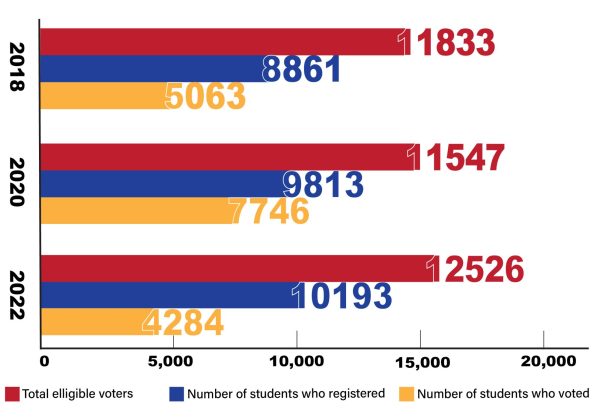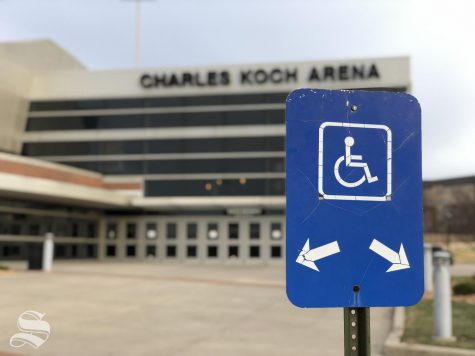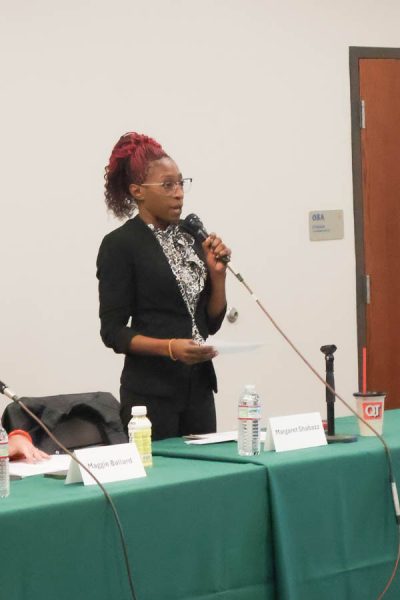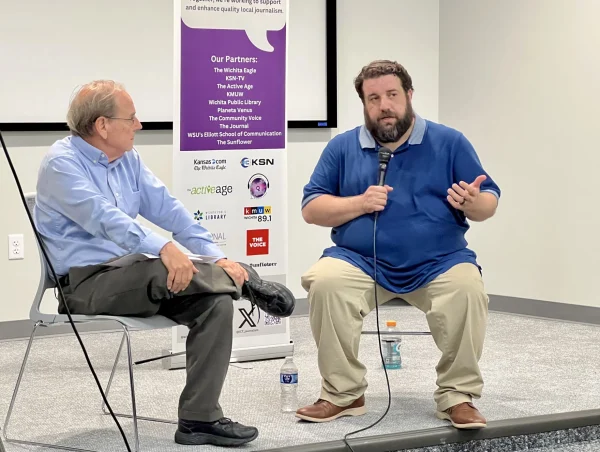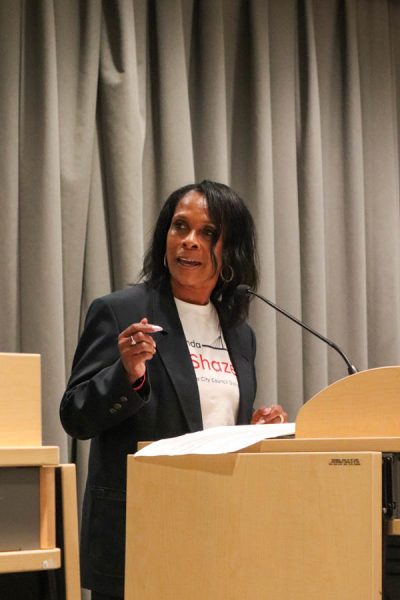Psychology of Women breaks down stereotypes, teaches empathy
Angie Hardage-Bundy would like to change the way Wichita State students think about gender differences. She has taught Psychology of Women for the past three years and is earning a doctorate degree in Clinical Psychology.
“I do recruit men to my classes as often as I can. I shamelessly self-promote. I love having a man’s perspective in my class,” Hardage-Bundy said. “Correcting those misconceptions about feminism and feminist psychology is really important to me.”
She said about 10 percent of her students are male. “If they’re male, they tend to be rather hesitant and quiet, especially at first,” Hardage-Bundy said.
In her class, she helps students understand the myths of domestic violence, victimization and objectification.
“I help students understand the perspective of interaction-ism,” Hardage-Bundy said. “That all of the ‘-isms,’ whether it’s sexism, ageism, size-ism, look-ism, racism, class-ism, all of those ‘-isms’ share this common assumption that different is deficient as opposed to the paradigm that different is just different.”
As far as gender differences are concerned, Hardage-Bundy said most differences boiled down to the individual, not the gender.
“My theoretical perspective draws largely from a philosophy called functional contextual-ism,” Hardage-Bundy said. “Do men and women think differently — I don’t subscribe to that theory.”
She teaches that gender stereotypes are a strong influence on the way people think, behave and interact with one another.
“I spend a good chunk of time in my classroom talking about how powerful these stereotypes are on our behavior, even when we know the stereotypes are crap, even when we don’t personally endorse the stereotypes,” Hardage-Bundy said. “It can be very humbling how much they still influence our behavior and interactions with other people.”
Amber Whittaker, a junior majoring in aerospace engineering, said that stereotypes are very noticeable in her area of study.
“I can tell sometimes that some of the male students feel like they are superior to the women students, but the women seem to be the ones that get the higher grades,” Whittaker said.
She said she works hard to earn excellent grades and the admiration of her peers.
“If you want to have the credit, if you want to have your opinion heard, then you have to assert yourself and make yourself heard,” Whittaker said.
She said about 20 percent of the students in her program are women.
“Some men do respect women in the field,” Whittaker said. “To respect women in the field you have to know them, just like the men.”
Whittaker said that the men in her classes respect her as an engineer because she is a hard worker.
“You have to prove yourself,” she said. “It’s going to be based on you, if you’re in a field where men are favored. That sucks, but you have to get over it and make the best of it and work as hard as you can to get what you want,” Whittaker said.
Hardage-Bundy also said that the individual is the most important factor. She said that there are simultaneous similarities and differences between genders.
Whittaker said that in her engineering classes the gender disparity doesn’t feel obvious.
“They’re just the people in my classes,” Whittaker said. “We’re all just engineers.”
“There is not a gender war,” Hardage-Bundy said. “Life is hard as a human being.”
She said that strength and oppression are not separated by gender. She also said that men in predominately female fields face difficulties as well. She said that often their sexuality is called into question.
She referenced the film Meet the Parents, where Ben Stiller plays a male nurse, as an example. She said that cultural perceptions might be changing.
“We aren’t taught these things,” Hardage-Bundy said.
She hopes her students leave the class with a perspective shift and greater empathy towards others.
Hardage-Bundy said the Eccle’s model of academic course offers methods to fix gender disparity in education. The Eccle’s model shows how an individual’s expectations and values may be shaped to affect achievement behaviors.
“Authenticity,” Hardage-Bundy said. She said authenticity should be what individuals strive for in their behavior and interactions with others.
Hardage-Bundy began studying English at WSU 21 years ago before switching to business and eventually leaving. She returned 12 years ago to earn an undergraduate degree in Psychology and upon completion, began work on a doctorate in Psychology at the age of 35. She teaches Psychology of Women, does clinical work with individuals suffering from eating disorders and works in the Counseling and Testing Center.



